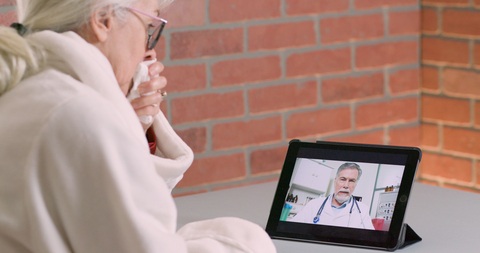Pandemic-Related Mesothelioma Treatment Delays Could Impact Outcomes

Mesothelioma treatment delays that happened because of the COVID-19 pandemic will probably impact survival rates for some patients.
A new study of Canadian lung cancer patients found that more than half of them stopped or delayed treatment because of concerns about the virus this spring.
Pleural mesothelioma is a lung-related cancer. Like lung cancer patients, mesothelioma patients face a higher risk of virus-related complications because they already have breathing problems.
But mesothelioma is also a fast-growing cancer. Most patients get several kinds of treatment at the same time. Mesothelioma treatment delays may give tumors a chance to grow unchecked.
A Catch-22 for Mesothelioma Patients
Mesothelioma patients and others with lung diseases have had to make some difficult decisions because of the pandemic.
SARS-CoV2, the virus that causes COVID-19, mostly affects the lungs. Pleural mesothelioma grows on the membrane around the lungs. As tumors grow, it gets harder for patients to breathe.
Without mesothelioma treatment delays, patients risk exposure to the virus at the hospital or clinic. Hospitals risk using up protective equipment they might need for COVID patients.
In addition, cancer treatments like chemotherapy and immunotherapy can make it harder for the body to fight off a viral illness. So exposed mesothelioma patients might get sicker than other people.
Mesothelioma treatment delays may protect people from the virus. But the new lung cancer study shows there could be a serious downside.
The Downside of Lung Cancer and Mesothelioma Treatment Delays
The new report appears in JAMA Oncology. It evaluated 211 lung cancer patients receiving active treatment.
The report shows that 121 patients (57%) had treatment delays or disruptions this spring because of COVID-19. Just under 15 percent of those patients stopped treatment because of concerns over the virus. Those delays lasted an average of 36 days.
About a quarter of patients had changes in medication dosing or treatment schedule. The authors warn that these patients may have higher death rates as a result of treatment delays. They point to another study that seems to show cancer therapy does not increase risk.
“Given preliminary findings that active cancer treatment is not associated with increased complications from COVID-19, lung cancer treatments and surveillance visits should proceed with caution,” says lead author Ariele Elkrief, MD.
The results suggest that mesothelioma patients who stopped treatment should resume as soon as possible. Mesothelioma tumors grow and spread quickly. Further mesothelioma treatment delays may not be necessary if patients follow recommended guidelines to protect themselves.
Elkrief and her team say hospitals should track the progress of cancer patients with treatment delays. This could provide important information about how to manage risk for these patients.
Sources:
Elkrief, A, et al, “Changes in Lung Cancer Treatment as a Result of the Coronavirus Disease 2019 Pandemic”, September 17, 2020, JAMA Oncology, https://jamanetwork.com/journals/jamaoncology/fullarticle/2770258
Dai M, Liu D, Liu M, et al. Patients with cancer appear more vulnerable to SARS-CoV-2: a multicenter study during the COVID-19 outbreak. Cancer Discov. 2020;10(6):783-791, https://cancerdiscovery.aacrjournals.org/content/10/6/783





